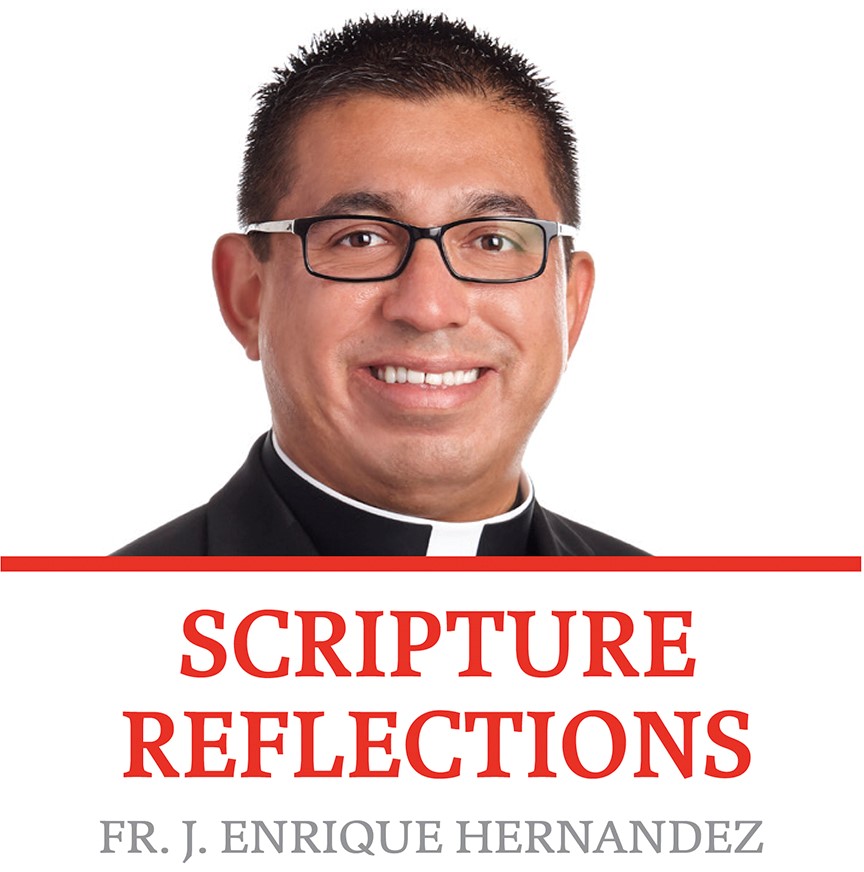Scripture Readings, Sunday, Oct. 8, 2023
Sunday, Oct. 8, 2023
Twenty-Seventh Sunday in Ordinary Time
Isaiah 5:1-7
Philippians 4:6-9
Matthew 21:33-43
My high school in Colombia had an emphasis on agriculture. For class every year, we needed to learn how to prepare the land, plant different vegetables, keep a schedule of watering and keeping the weeds away, etc. It was a lot of work.
In today’s Gospel, the landowner purchased the land and did the work himself to set up the vineyard before he handed it over to the tenants. When he entrusted it to them, he was not simply looking for a profit, but for someone to manage his vineyard. The landowner did not stay around to supervise the tenants tightly. God is not a tyrannical taskmaster. He knows laboring in his vineyard is hard work.
At harvest time, the master sent messenger after messenger. In this parable, Jesus tells us about the great mercy of God. Even after the injustices that the tenants were committing, he did not become irate or condemn them, even after one messenger had been abused and another mistreated. Rather, he sends them his son. He does everything possible to bear their egotism and selfishness and try to inspire them with his understanding and generosity.
In this parable, the vineyard is a figure of Israel. We can understand it also as a figure of God’s blessing on his chosen people, or even as this whole created world, or as the portion of life we have been allotted, given to us as the arena of blessing and salvation. God demands fruits of holiness from his vineyard, not indeed for his own benefit, but only for the benefit of his people. Yet, throughout their history, the Jews responded to the divine gift with disloyalty, hard-hearted murmuring, infidelity and rebellion.
I wonder if the landowner would come to you or me for advice, seeking an opinion of what to do about the situation. I think a lot of us would probably tell him to sell the vineyard, to invest and work in something else. Of course, the Lord knows the problem is not the vineyard. He valued it greatly — greatly enough to risk the life of his son for the vineyard. Now, with the New Covenant Christ has established his vineyard — the Church — and put it into our hands. Christ pays us the compliment of entrusting us with his work, with what he values. He not only gives us a job to do, but mysteriously puts the eternal salvation of other souls in our hands. It is a beautiful invitation to participate in his mission of salvation.
We have received the mission of producing the fruits of the kingdom, but in comparison with the Jews of the Old Testament, the stakes for us have been raised considerably. The Jews had only Moses and the prophets to guide them. The owner of the vineyard left his instructions, then went away, for it often seemed to them as if God were absent. But we have Jesus; we have the Holy Spirit; we have the sacraments of the Church; we have the promise of eternal life. Yet, we too can take Jesus, if we want, and cast him out, and attempt to kill him. We can reduce him to a practical irrelevance in our lives; we can banish him from our hearts; we can flagrantly disobey his law.
Some of us try to make the excuse to say something like, “I do not know God’s mission/plan for me.” “I do not know what my life purpose is.”
Allow me to make a couple of points demonstrating that these statements are an excuse: First of all, we walk by faith, not by sight — our life is a mystery, and we need to trust in his plans even though we do not know all the details of his plan for us. Second, you and I already know our mission: Love God above anything else, and love others as we love ourselves. In other, simpler words, our mission is to be in constant connection with God, to serve others and live as best we can.
This parable is a reminder to never become a lazy Catholic. We have all been there, thinking that we don’t need the Church and therefore we don’t have to go to Mass or forgive those who have wronged us, or that we don’t need to pray, or read the Scriptures, or that we can ignore the needs of others, or that we don’t need to go to confession. All this can lead us astray from God and our humanity. Sometimes we need a reminder of what happens when we aren’t vigilant and are mired in a selfish and sinful life. This story is one of those reminders.
Let this Gospel light a fire under your feet, encouraging you to do more than you are now to produce good fruit and build God’s Kingdom, because our work is never done. Are you ready to show the Lord the fruit of your mission when he comes? Would the Lord give you his Kingdom or take it away from you?
Let us pray for each other that we may be faithful to produce the fruit that the Lord wants us to produce for his glory and the sake of his Kingdom.

